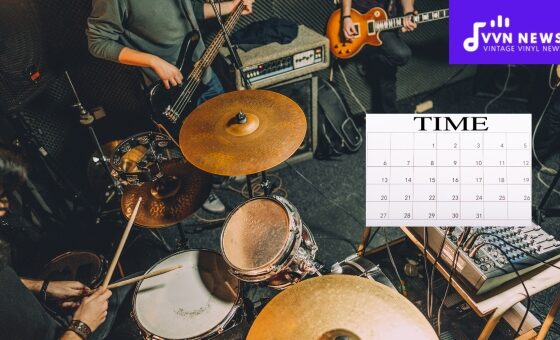As we rapidly approach the year 2023, industries worldwide are evolving at astounding rates, resulting in new opportunities and career paths. One industry experiencing significant growth is Audio Engineering.
Recognizing this, I have decided to create an informative guide designed to help prospective students and career changers find the best institutions to launch or elevate their careers.
I’m thrilled to present to you the top 25 audio engineering schools and colleges in 2023. Audio engineering is a dynamic field that merges creativity with technical prowess.
Choosing a college or school that propels your unique needs can be challenging, given the many options available.
This list of top-tier institutions will help you make an informed decision about your educational journey and guide you straight into the heartbeat of the audio engineering profession.
What is Audio Engineering?
Audio engineering, often referred to as sound engineering, is a specialized field that involves the recording, editing, manipulation, mixing, and production of sound.
It’s an indispensable discipline in various industries such as music, film, TV broadcasting, and advertisements among others. The professionals in this field are commonly known as audio engineers.
An audio engineer utilizes a plethora of sophisticated equipment and software to craft optimal sound quality, adhering closely to the vision of an artist or producer.
They play with multiple elements like pitch, rhythm, and noise level to create perfect audio balance.
Audio engineers aren’t just confined to music studios; they are heavily required in live events like concerts and theater performances.
In essence, anywhere you hear professional quality sound be it a blockbuster movie or a chart-topping song there has likely been an audio engineer involved in the production process.
Factors to Consider When Choosing an Audio Engineering School
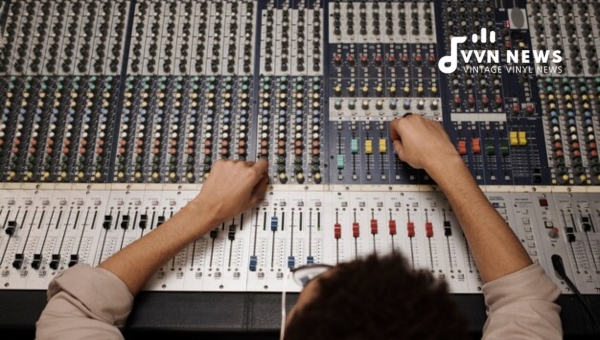
When it comes to selecting an audio engineering school, a myriad of factors must be taken into consideration. Suppose you intend to master the art and science of audio engineering.
In that case, these elements determine whether or not a learning institution is capable of providing the requisite environment and resources for your growth and eventual success.
Below are key aspects you should contemplate when choosing a school:
Reputation
Surprisingly enough, reputation is everything. Look out for schools renowned for their quality instruction and outstanding graduates in the field.
These institutions are often highly ranked among audio production colleges, which is indicative of a robust education philosophy and commitment to student success.
You can research various rankings on websites like U.S News, or specific associations like The Audio Engineering Society.
Faculty Expertise
Faculty expertise is certainly one element that shouldn’t be lightly regarded. It’s crucial that your instructors or professors not only hold the required academic credentials but also have industry experience.
Their real-world expertise translates into practical insights, making the learning process engaging and relevant. It’s always advisable to read faculty bios on the school’s website to assess their qualifications and experience.
Curriculum & Course Structure
When evaluating any educational program, inspecting the curriculum is pivotal. Does the curriculum cover essential areas such as recording techniques, digital audio workstations (DAW), acoustics, mastering, sound design, and live sound reinforcement?
A well-rounded and comprehensive curriculum will lay a solid foundation for your journey in audio engineering.
It’s also useful to review if the course structure suits your personal needs and goals – consider whether you want a full-fledged degree program or short-term certification courses.
Equipment and Facilities
In this tech-driven industry, up-to-date equipment is an absolute necessity.
The best audio engineering schools have top-of-the-line recording studios sporting the latest industry-standard software & hardware such as Pro Tools, Logic Pro X, Ableton Live etc., alongside state-of-the-art microphones, mixing consoles, speakers, and other studio gear.
Additionally, a good rehearsal space, music libraries, soundproof booths, and computer labs are other facilities you should be looking out for.
These components significantly enhance the hands-on practical learning experience.
Cost and Scholarships
Lastly, cost is undeniably a massive determinant when choosing a college. Tuition can vary widely from one institution to another.
You should consider if the benefits gained from attending a particular college align with its cost this includes considering the potential return on investment (ROI) as it relates to future job opportunities.
On the bright side, numerous schools offer scholarships or financial aid programs.
You might want to investigate what financial assistance options schools have- this could significantly reduce the burden of tuition costs.
To find more about scholarships available, you may check sources such as Fastweb or the school’s financial aid section on their website.
By giving proper attention to these factors, you’ll be better positioned to make informed decisions regarding the right educational institution for your journey into the world of audio engineering.
Also Read: The Best Music Business Schools & Colleges In 2025
Top 25 Audio Engineering Schools And Colleges in 2023
Choosing the right educational institution is an instrumental step toward launching a successful career in audio engineering.
To simplify this process, let’s delve into this meticulously curated list of the Top 25 Audio Engineering Schools and colleges for the year 2023.
Berklee College of Music
Located in Boston, Massachusetts, Berklee College of Music is a globally recognized institution with a rich history dating back to its inception in 1945.
With its renowned Bachelor of Music degree program in Music Production and Engineering (MP&E), Berklee ensures an enriching learning experience for budding audio engineers.
The curriculum is practically riveting with modules on recording, editing, and mixing techniques akin to real-world scenarios.
Here, students gain access to 13 professional recording studios for endless hours of hands-on experience.
Alongside learning technicalities, students can explore courses like Music Acoustics, and Audio mastering offering comprehensive knowledge.
One standout feature is its esteemed faculty pool – industry veterans who bring real-world experience to the classroom amplifying the overall learning experience for students.
Full Sail University

Located in Winter Park, Florida, Full Sail University offers a comprehensive degree in audio engineering through its Bachelor of Science program in Recording Arts.
Established in 1979, the institution emphasizes education that binds creative design, technical advancements, and actual industry practice.
The Recording Arts program envelops various critical aspects including mixing, dubbing, and track compiling among others.
It has been meticulously designed to encourage students’ creative capabilities while bolstering a strong technological understanding.
Notably, Full Sail offers virtual versions of their laboratories equipped with industry-level gear simulating realistic work scenarios. This ensures their students are ready for real-world challenges.
Tuition fees for the bachelor’s program approximate $24,000 per year and include project-launch boxes filled with professional software.
There are multiple scholarships available for prospective and enrolled students such as the ‘Creative Minds Scholarship’ and the ‘Full Sail Tuition Scholarship.’
SAE Institute
The SAE Institute is home to an encompassing array of programs spanning six areas of focus: Animation, Audio, Film, Games Development, Music, and Entertainment Business.
With its campus located in major cities like New York and Los Angeles as well as over 50 campuses worldwide, SAE has carved itself as an international brand since its inception in 1976.
SAE’s ‘Bachelor of Audio’ exposes students to practical training on advanced recording consoles and workstations & production software such as Logic Pro X & Pro Tools.
The school is well-equipped with state-of-the-art equipment emulating live sound environments.
The gross tuition fees hover around $23k each year after applying for financial aid if eligible; Scholarships like ‘The Buddy Holly Educational Foundation Scholarship’ are also accessible.
NYU Steinhardt School
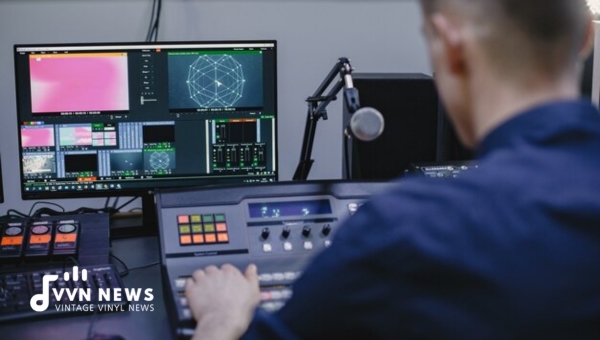
Part of the renowned New York University (NYU), the Steinhardt School hosts one of the most reputed Music Technology programs across the globe.
Founded in 1890 and located in New York City at Washington Square Park’s heart; It’s a perfect blend of theory & technical skills training bolstered by NYU’s potent network within NYC’s dynamic music industry scene.
Their B.Mus In Music Technology’ is highly competitive featuring modules on electronic music synthesis, recording technology & audio engineering principles plus more advanced topics like Digital Signal Processing or acoustics fundamentals further down the curriculum.
Los Angeles Recording School
A division of Hollywood’s prominent ‘L.A Film School’, The Los Angeles Recording School offers a one-year-long ‘Recording Arts Program’.
Established in 1985 it has been fueling future sound engineers primarily focused on honing hands-on skills under experienced faculty patronage.
Their immersive course structure spans topics like signal processing, music production, and audio post-production while ensuring practical exposure via numerous skill-intensive projects.
Students gain experience with equipment from top-end manufacturers e.g SSL, Digidesign, or Neve
University of Southern California (USC) – Thornton School of Music
Located in the heart of Los Angeles, USC’s Thornton School of Music is one of America’s oldest and most respected music schools.
Founded in 1884, the school boasts a distinguished history and an impressive list of prominent alumni.
The Thornton School offers a variety of undergraduate, graduate, and doctorate programs specializing in various fields like Classical Performance, Composition, Jazz Studies, and Music Education among others.
For prospective audio engineers, the ‘Music Technology’ program is designed to enhance their skills in sound manipulation and production. Though it may seem steep, USC offers numerous scholarships based on merit and financial need.
Notable features include access to state-of-the-art recording studios and opportunities to collaborate with Los Angeles’ thriving music industry.
Belmont University – College of Entertainment and Music Business
Situated in Nashville, Tennessee – often known as the ‘Music City’, Belmont University’s College of Entertainment and Music Business (CEMB) is ideally placed for those looking to make their mark in the audio engineering field.
Established in 1975, CEMB was among the first programs to offer a degree in the music business.
CEMB offers a Bachelor of Science Degree with a major in Audio Engineering Technology.
The curriculum perfectly balances theory with practical applications providing students with hands-on experience right from their freshman year. Comprehensive scholarship opportunities are available including merit-based awards.
What sets CEMB apart is its industry connections providing students placements with world-renowned companies like Sony/ATV Music Publishing, Warner Music Group, etc.
Musicians Institute
Musicians Institute (MI) located in Hollywood, California has been cultivating music professionals since its inception in 1977.
The institute continuously evolves its comprehensive programs to keep pace with the changing music industry landscape.
MI’s Comprehensive Audio Program or CAP prepares you for diverse audio career options combining both technical training such as live sound production & studio recording technology along with crucial business fundamentals. Scholarships are available periodically facilitating aspiring talent.
A unique feature MI offers is its immersion into the musical community which can provide networking opportunities at every turn.
University of Miami – Frost School of Music
The Frost School at the University of Miami located amongst swaying palm trees & sprawling beaches houses one of the largest collegiate studio complexes dealing specifically with audio engineering education since 1964.
Bachelor degrees comprise specialized paths such as Production and engineering that place heavy emphasis not only on technical aspects but also creativity & compositional skills over a wide range of genres from rock/pop to jazz/classical etc
Yet multiple scholarship options exist easing significant financial burden off aspiring audio engineers.
Frost’s stand-out feature lies within its commitment towards intimate learning scenarios demonstrated by studio classes having only a max of up to 9 students.
Middle Tennessee State University (MTSU)

Located in the beautiful city of Murfreesboro, Tennessee, Middle Tennessee State University (MTSU) is known for its Recording Industry Program.
MTSU started as a teacher training institution in 1911 and has since expanded to accommodate a diverse range of disciplines.
MTSU offers a B.S. in Audio Production which gives students access to their state-of-the-art recording studios and industry-standard equipment.
Students learn audio engineering techniques under the guidance of experienced faculty members who have worked in the music and entertainment industry.
Several financial aid packages are available for eligible students who meet certain criteria.
MTSU’s features include an immense campus spanning about 500 acres with numerous resources like libraries and residential halls.
The Art Institutes
The Art Institutes, with multiple campuses across the USA such as Atlanta, Dallas, Houston, etc., provide noteworthy Audio Production programs that cover areas like sound reinforcement, audio electronic systems, studio recording procedures, etc.
Founded in 1969 with its parent campus in Pittsburg, The Art Institutes has built a reputation as a reliable provider of degree programs focusing on creative industries. They offer scholarships based on eligibility criteria and each individual’s merit.
Notable features include labs equipped with analog and digital hardware that students can utilize for hands-on experience.
The faculty includes professionals from the audio industry providing real-world insights to learners.
Columbia College Chicago
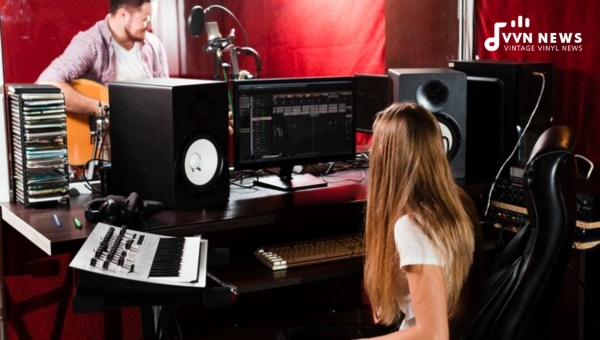
Located in downtown Chicago’s South Loop neighborhood with stunning views of the Lake Michigan shoreline, Columbia College Chicago offers an exceptionally comprehensive program – B.A Sound Design & Technology – that emphasizes both technology and artistry through its emphasis on practical application alongside theory.
Founded in 1890 as a business school it’s now known for arts and media disciplines. Financial aid packages including scholarships are available to help offset these charges.
A unique feature of Columbia’s program is its focus on collaboration – encouraging students to work together on tasks that simulate real-world scenarios like live events or studio recordings.
Expression College for Digital Arts
Situated in Emeryville California, Expression College for Digital Arts has been recognized as an entertainment arts college where budding sound engineers have achieved their academic dreams since its establishment in 1999.
The school offers a Bachelor’s Degree with a promising comprehensive curriculum comprising advanced interactivity audio or mix techniques courses among others.
One standout feature of Expression is it offers internships within some important tech companies based within the San Francisco Bay area which gives vital industrial exposure to students.
The Los Angeles Film School
The Los Angeles Film School is located in the heart of Hollywood, which is predominantly known as the film capital of the world.
The school has been offering quality education in various domains of arts and entertainment for over two decades, with a robust emphasis on hands-on experience.
The school’s Associate of Science in Audio Production offers a deep dive into sound design, location recording, sound effects, and post-production.
The courses provide students with an understanding of both technical skills and theoretical principles through modules like acoustic and studio design, audio post-production, advanced mixing techniques, and mastering and duplication. Numerous financial aids through scholarships and grants reduce this burden significantly.
Their campus boasting state-of-the-art facilities mirrors a real-world production environment that allows students to have firsthand industry experience.
Savannah College of Art and Design (SCAD)
Situated in Savannah Georgia, Savannah College of Art and Design (SCAD), has been nurturing creative talents since 1978.
Their Sound Design Program emphasizes creative expression amidst technical proficiency.
Converging areas like music production, soundtrack development for films/games/TV shows, and live sound reinforcement., makes their curriculum one-of-a-kind.
Graduates walk away with BFA or MFA qualifications depending upon the chosen program.
Equipped with advanced audio software tools their high-tech facilities create a stimulating learning environment necessary for life after graduation.
Purdue University – Department of Computer Graphics Technology
Purdue University, situated in Indiana, has always been at the forefront when it comes to technology-based education.
Purdue’s CGT Department offers an Audio Engineering concentration under the category Bachelor’s degree in Sound Engineering.
This program revolves around audio equipment operation troubleshooting & maintenance along with applicable computer technologies.
Courses in electronics audio systems circuit measurement are incorporated into the curriculum making it comprehensive for future professionals.
University of Michigan – School of Music Theatre & Dance
Offering top-tier education since 1879, the University Of Michigan(UM)’s Ann Arbor campus is highly sought after by aspiring audio engineers.
UM’s Department of Performing Arts Technology presents undergraduates with an opportunity to earn a Bachelor’s Degree in Sound Engineering.
Integrating courses such as Foundation of Music Technology Analog/Digital Studio Techniques Musical Acoustics Recording Studio Workshop among others.
Complete equipped analog/digital audio lab real-world projects to offer hands-on practical experience preparing students advancements career future endeavor.”
Also Read: 19 Best Audio Interfaces For Home & Studio Recording 2025
University of Texas at Austin – Butler School of Music

Located in the bustling heart of Texas, The Butler School of Music is a hidden gem within the prestigious University of Texas at Austin. The school has been nurturing aspiring audio engineers since its inception in 1940.
The school offers a range of programs, which comprise Bachelor’s, Master’s and Doctoral degrees.
Students can tailor their learning towards audio engineering through the school’s ‘Music Recording Technology’ module under the Bachelor of Science in Sound Recording Technology program.
This program delves deep into the intricacies of acoustics, mastering, and post-production, equipping students with industry-demanded expertise.
Scholarships exist in a variety: longhorn band scholarships, and the David Elliot Memorial Scholarship in Music to name a few.
The Butler School houses state-of-the-art recording studios outfitted with stellar equipment that allows hands-on experience for its students right from day one.
Indiana University – Jacobs School of Music
Jacobs School of Music, located within Indiana University campus grounds in Bloomington is an esteemed school revered globally for its comprehensive course offerings.
Founded in 1921 as “the School of Music”, it was later renamed to honor the Jacobs family who made significant contributions to it.
Among many other programs, Jacobs offers both Bachelor’s and Master’s degrees in Audio Engineering and Sound Production that delve into various aspects like sound reinforcement, studio recording techniques, and digital audio workstation operation.
A range of scholarships are available based on academic excellence and musical talent such as the Starling Distinguished Violinist Scholarship.
With top-class faculty guiding you every step along with industry-standard recording studios of diverse design at your disposal will help you acquire the much-needed practical skills more efficiently.
New England School of Communications (NESCom)
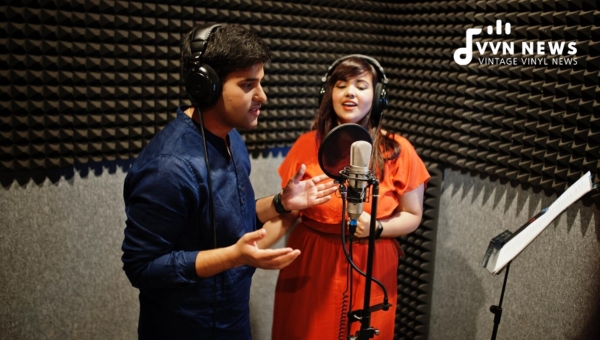
NESCom nestles cozily at Husson University campus located in beautiful Bangor City Maine.
Initially established as New England Institute (1981), they rebranded themselves to NESCom (1992) merging with Husson University in 2014 further broadening their horizons.
NESCom delivers an exquisite bachelor’s degree program focusing entirely on audio engineering dubbed “Audio Engineering.”
This comprehensive program introduces students to areas like music reproduction, live sound reinforcement, and studio recording.
Grounded on a hands-on training approach NESCom homes excellent facilities like Foley sound effects studio guaranteeing practical experience holding high industry relevance enabling graduates better career opportunities.
Institute of Production and Recording (IPR)
IPR stationed in Minneapolis Minnesota got started back in 2002 intending to create skilled creative minds readying them for high-demand media arts fields.
Under their educational umbrella one notable targeted program “Associate Degree Program In Audio Production & Engineering” can equip you with skills such as signal flow understanding or audio console operations among others learning composition theory to substantiating holistic growth knowledge-wise alongside professional competencies building setting you up perfectly into the professional world right after graduation.
IPR provides scholarship opportunities impacting positively on affordability making education more accessible conquering financial barriers paving the way towards flourishing careers.
University of Colorado Denver – College of Arts & Media

The University of Colorado Denver – College of Arts & Media (CAM) is nestled in the heart of downtown Denver.
It is known for being the only music and visual arts school in the Rocky Mountain Region. Founded in 1990, CAM has been fostering innovative creativity and scholarly study for more than three decades.
At CAM, a student is offered a variety of undergraduate degree programs including Recording Arts, Music Business, Film and Television, and more.
The degree in Recording Arts emphasizes experiential learning with studios on campus that are open 24/7, offering practical exposure to budding audio engineers at any time of day or night.
Tuition fees depend largely on whether you are an In-State or Out-of-State student.
Scholarships such as the Rising Star Scholarship are also available to aid students financially.
McNally Smith College of Music
Based in Saint Paul, Minnesota, McNally Smith College of Music, established in 1985, is dedicated entirely to contemporary music education.
With its diverse and highly-experienced faculty staff and up-to-date recording studios; it stands as one of the prominent landmarks in the audio engineering field.
They offer both associate degrees and bachelor’s degrees in Music Production.
The courses provide students with rigorous training on state-of-the-art recording gear utilized in today’s industry.
Scholarships like The McNally Smith Merit Scholarship offer some relief from hefty tuition costs since they cater up to half the total charges for qualified students.
Ontario Institute of Audio Recording Technology (OIART)
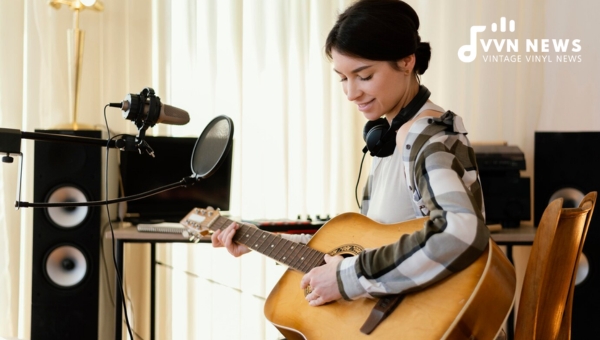
The Ontario Institute of Audio Recording Technology (OIART) founded in 1983 and located in London, Ontario Canada boasts a strong global reputation with Alumni spread across various continents working at top-tier production companies.
OIART offers a fast-tracked program: an intensive 48-week course covering all aspects required by the sound-obsessed mind; from music production down to live sound reinforcement with avant-garde gears at disposal promoting hands-on experience over theoretical knowledge.
The Blackbird Academy
Situated within iconic Blackbird Studio facility surroundings in Nashville Tennessee- known as ‘Music City U.S.A’, launched only recently in 2013.
The Blackbird Academy delivers superior audio education shaped predominantly by industry professionals themselves who often double up as instructors for the courses it offers.
Its two-audio-program format includes Studio Engineering(where you learn studio techniques) and live sound(to prepare you to handle massive concerts); each runs a length of six months.
Career Opportunities for Audio Engineers in 2023
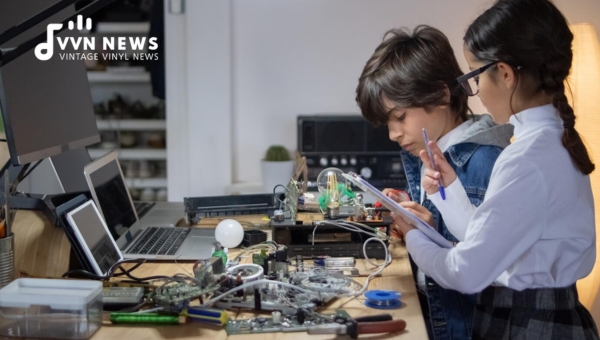
As we approach 2023, audio engineering is foreseeing an impressive expansion of career opportunities.
Presently, the demand for these skilled professionals is growing in traditional sectors like music, film, and television production.
Additionally, new opportunities are emerging in contemporary fields such as podcasting and audio equipment design. Let me discuss a few key career options:
Studio Engineer
An audio engineer working within a recording studio setting, assisting artists and bands in creating high-quality records.
Live Sound Engineer
These engineers are responsible for perfect sound quality during live events such as concerts and theater performances.
Broadcasting & Post-Production Engineer
Working predominantly within television studios or film post-production, these engineers ensure optimal sound quality on broadcasts.
Game Audio Designer
With the rise of immersive gaming experiences and virtual reality, audio engineers specializing in game design are increasingly sought after.
The demand for audio engineers is projected to grow substantially by 2023 across various sectors making it an excellent time to consider pursuing this dynamic field.
With the right education from one of the top listed schools above, you could soon step into a thriving industry chock-full of unique opportunities.
Also Read: How To Get A Music Business Degree In 2025? [Skills & Careers]
FAQs About Audio Engineer
What does an Audio Engineer do?
An Audio Engineer employs both creative and technical expertise to manipulate, mix, record, or reproduce sound on various platforms, such as film, music, and television.
Does an Audio Engineering degree guarantee a job?
While obtaining a degree in Audio Engineering significantly enhances your prospects, it does not necessarily guarantee a job. It often depends on factors such as industry demand, individual skill level, and networking abilities.
What are some ideal careers for an audio engineering graduate?
Careers for audio engineering graduates include Sound Designer, Mixing Engineer, Recording Engineer, Live Sound Engineer, and Post Production Specialist.
Is it necessary to go for postgraduate programs after a bachelor’s degree in audio engineering?
No. The need for further education depends on the specific career goals of the individual – while some roles might require advanced qualifications or specialized training, others can be pursued directly after completion of a bachelor’s degree.
Are there scholarships available for studying Audio Engineering?
Yes! Many institutions offer scholarships based on various criteria such as financial need or academic achievement.
Conclusion
Choosing to pursue audio engineering at an esteemed institution is certainly a path worth considering.
Undoubtedly, the schools and colleges listed above will provide students with the necessary skills and knowledge needed to thrive in this exciting industry.
As always, it’s important to meticulously research your options and choose the institution that resonates best with your career aspirations and financial circumstances.
Audio engineering is not only a pivotal role in today’s digital era but also a platform where creativity meets technology, an exciting intersection indeed. Best of luck on your journey!

